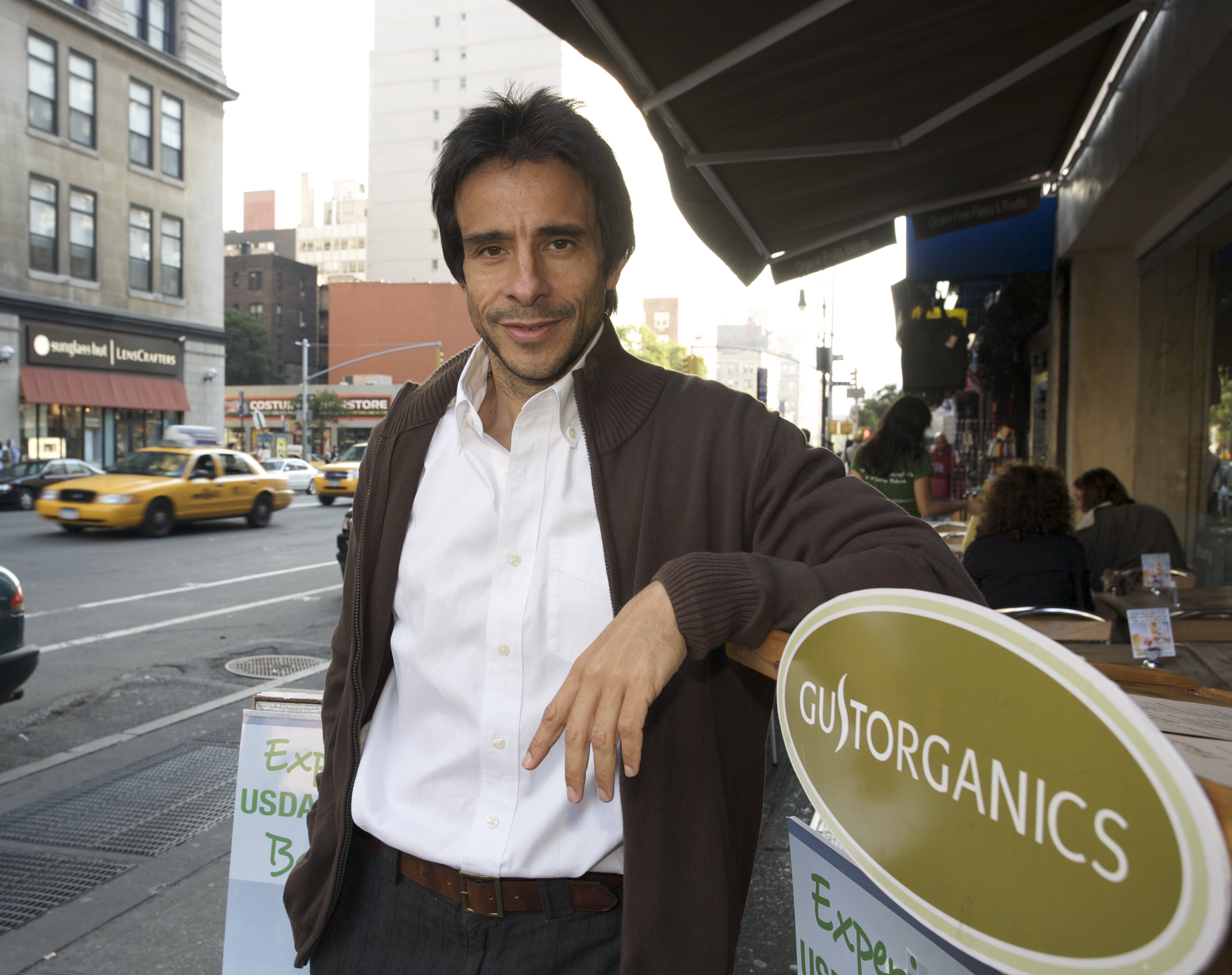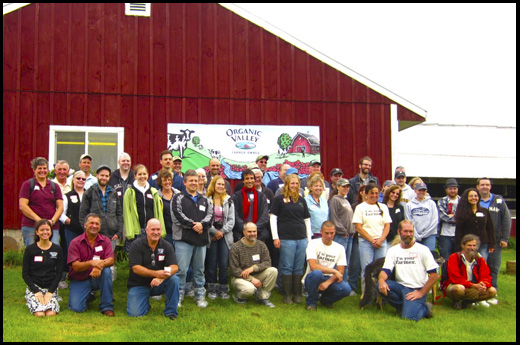by guest blogger Alberto Gonzalez, founder and CEO of GustOrganics
Several weeks ago I was fortunate enough to attend Organic Valley’s annual meeting, at which more than 600 of its farmer-owners converged in LaCrosse, Wisconsin.
For those who are not familiar with it, Organic Valley is part of a farmer-owned cooperative (the CROPP Cooperative) of 1,687 certified-organic farms scattered all over the U.S. and three provinces in Canada. The cooperative was founded in 1988 and is still run by several of its founding farmers, including CEO George Siemon.
What I witnessed at this event was poetry in motion. These guys have been busy silently creating the future of agriculture. I know that may sound like a big statement, but their work really got me thinking about what it will take to sustain our farms, our families, and our environment, and I think these guys have the answer.
The CROPP farmers are focused on developing ways to grow more nutritious food in a more sustainable way, and they are constantly looking for ways to raise the bar when it comes to the environmental impact of their work. They do all of this by sharing in each other’s knowledge (how simple, right?!) using hyper-specialized workshops, and truly collaborating and cooperating. I call this farming democracy in action.
And take note: These guys—these farmers at the top of their field—are moving away from obsolete and unsustainable oil-based agriculture to sun-based agriculture; from chemicals to organics; from large factory farms to small family operations; from consolidated industry to local agriculture; from GMOs to organic; from cheap to affordable; and, most important, from quantity to quality. And they do all of this not just from a place of integrity, shared values, and common sense. They do it because it’s good business—sustainable, successful business.
Let me share with you some of the things that struck me the most during the three-day event:
You’d think that a big corporate event like this would be dominated by the CEO talking about how wonderful his company is and how much money it’s making. But in this case, Siemon was hands-off, leaving the center stage to farmers talking about their methods. You might think, Maybe the guy didn’t take center stage because the cooperative’s numbers weren’t good this year. Well, in 2011 CROPP had sales of more than $715 million, a more than $90 million increase from the year before. No, what I saw were the inner workings of a company that is a very flat, democratic organization in which hierarchy doesn’t really exist. The executive decision-making is consolidated on a farmers’ board that is elected every year to make it democratic, transparent, and fair. And because of that, I saw a great sense of responsibility and community in this profit-driven business.
Mike Bedessem, Organic Valley’s CFO, was, for me, another revelation. Bedessem took the stage and announced another great year for the cooperative, and talked about some if the numbers I mentioned above. He also talked about managing CROPP financial resources in such a way so that most of the wealth created is distributed among the farmers, into soil improvement initiatives, and on research and development toward better products for the consumers. And he talked about improving the communities in which Organic Valley operates. Finally, here was a CFO who was not only interested in the financial outcome, but also the social and environmental results of the company. This is a triple-bottom-line business: profit-driven, people-focused, and environmentally responsible.
In the modern world, it seems like most good works are done through nonprofits. But that’s not entirely true. The strength of CROPP is its cooperative business model, and if we consider that we are coming out of the worst economic time in the U.S. since the Great Depression, this cooperative’s results are even more astonishing. Walking around CROPP’s annual meeting, and interacting with the farmers and staff, I sensed an organization with no egos, an incredible sense of community and well-being, and a profound respect for people and the environment.
As I have stated long ago I truly believe that capitalism needs to be changed from within and driven by profits. And I think what CROPP is doing is the future of farming. And while doing it, they’re creating a better future for our families by providing high-quality organic food available to mainstream America along with opportunities for small family farms that have been unfortunately pushed away from their land for years as a result of industrial agriculture.
For those who believe that sustainability cannot be achieved while Monsanto is around, I would mention that CROPP is accomplishing all this beauty without providing one cent to Monsanto and its GMO machine. The UN named 2012 the International Year of Cooperatives, and, as such, I think we all should celebrate Organic Valley’s success in creating a truly positive and sustainable American business model. CROPP’s mission is to have organic food available everywhere, to heal our soils, and bring small family farms back to America’s farmland. Hopefully, their leadership will inspire other companies to work toward improving their triple bottom lines, too.
 Alberto Gonzalez is the founder and CEO of GustOrganics, the world’s first certified-organic restaurant using 100 percent organic ingredients, and one of the greenest and most progressive restaurants on the planet, gustorganics.com.
Alberto Gonzalez is the founder and CEO of GustOrganics, the world’s first certified-organic restaurant using 100 percent organic ingredients, and one of the greenest and most progressive restaurants on the planet, gustorganics.com.





Is there going to be one in my state N.C. Madison?
Most people opt for motorbikes as they are cost effective and also can save
a lot of time running errands. They provide loans for different time-period against appropriate securities.
In fact you will find many service providers who say they are
based in UK and US don.